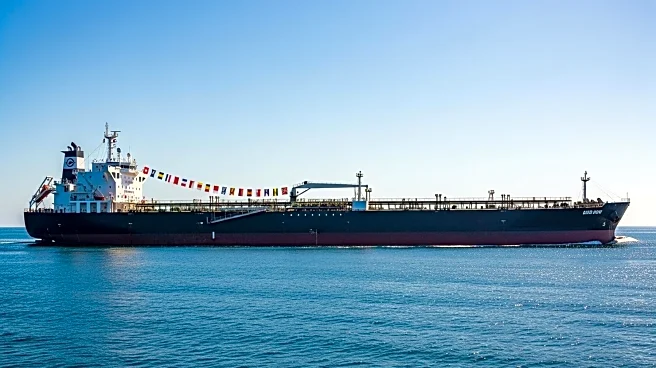What's Happening?
The European Union is considering sanctions against three firms accused of providing fake flags to Russian oil tankers operating in a shadow fleet. These entities have allegedly supplied false Aruba, Curacao, and Sint-Maarten flags to at least eight sanctioned vessels. The proposed sanctions are part of a broader EU effort to pressure Russia's shadow fleet and reduce Moscow's oil revenues. The package includes sanctions on 120 additional vessels and restrictions on entities in third countries facilitating Russia's energy trade. The EU's measures require unanimous approval from member states before implementation.
Why It's Important?
The EU's actions aim to disrupt Russia's ability to circumvent international sanctions and continue its energy trade. By targeting the shadow fleet, the EU seeks to cut off a significant revenue stream for Russia, potentially impacting its economy and geopolitical influence. The sanctions also highlight the challenges of enforcing international maritime regulations and the need for coordinated global efforts to address fraudulent practices. The outcome of these measures could influence global oil markets and international relations, particularly between the EU and Russia.
What's Next?
The EU will continue negotiations among member states to finalize the sanctions package. Increased scrutiny of vessels near European waters is expected, with potential detentions of suspicious ships. The effectiveness of these measures will depend on the EU's ability to enforce compliance and the response from Russia and other affected parties. The situation may lead to further diplomatic tensions and impact global energy supply chains.









